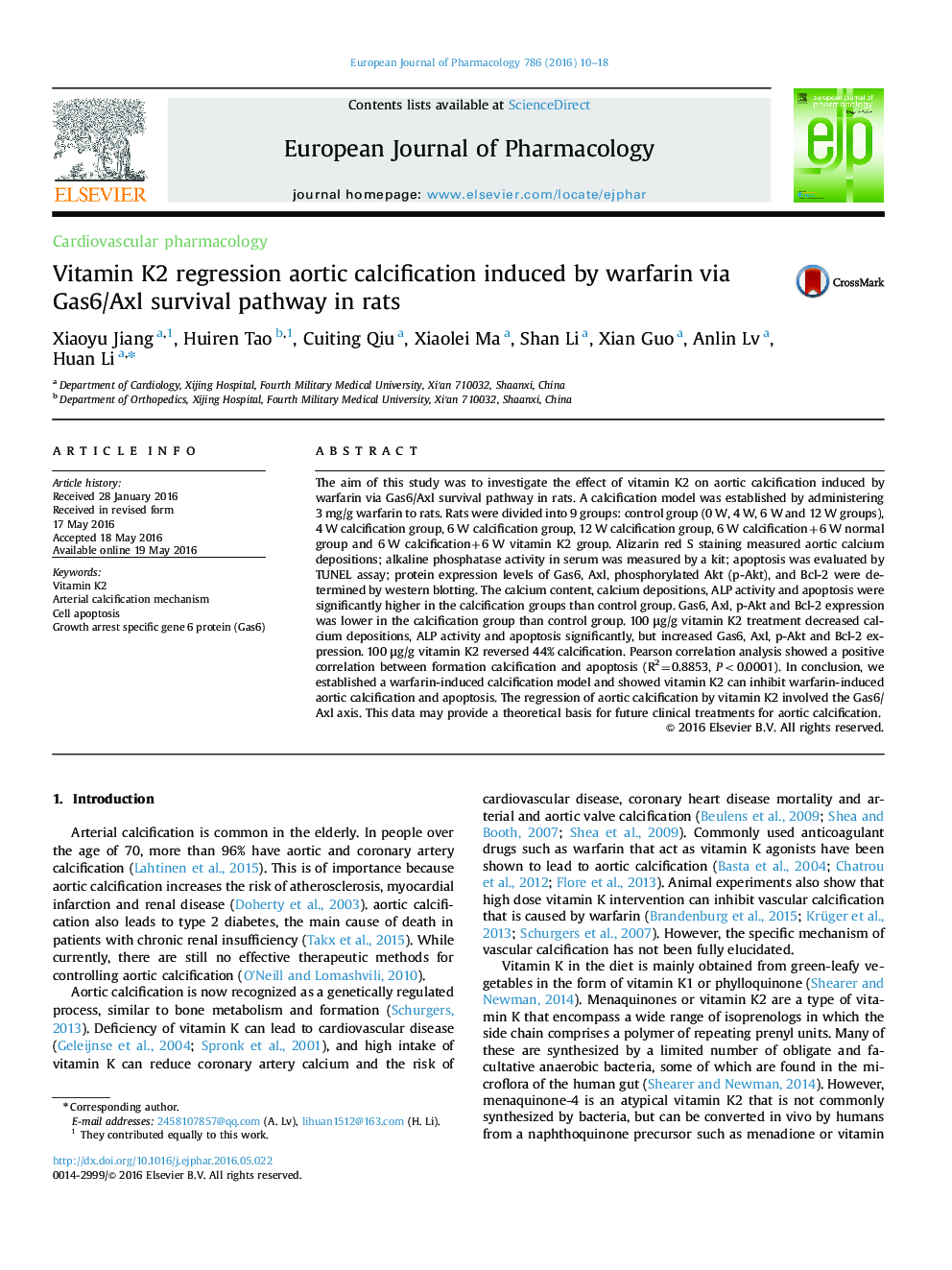| Article ID | Journal | Published Year | Pages | File Type |
|---|---|---|---|---|
| 2531001 | European Journal of Pharmacology | 2016 | 9 Pages |
The aim of this study was to investigate the effect of vitamin K2 on aortic calcification induced by warfarin via Gas6/Axl survival pathway in rats. A calcification model was established by administering 3 mg/g warfarin to rats. Rats were divided into 9 groups: control group (0 W, 4 W, 6 W and 12 W groups), 4 W calcification group, 6 W calcification group, 12 W calcification group, 6 W calcification+6 W normal group and 6 W calcification+6 W vitamin K2 group. Alizarin red S staining measured aortic calcium depositions; alkaline phosphatase activity in serum was measured by a kit; apoptosis was evaluated by TUNEL assay; protein expression levels of Gas6, Axl, phosphorylated Akt (p-Akt), and Bcl-2 were determined by western blotting. The calcium content, calcium depositions, ALP activity and apoptosis were significantly higher in the calcification groups than control group. Gas6, Axl, p-Akt and Bcl-2 expression was lower in the calcification group than control group. 100 μg/g vitamin K2 treatment decreased calcium depositions, ALP activity and apoptosis significantly, but increased Gas6, Axl, p-Akt and Bcl-2 expression. 100 μg/g vitamin K2 reversed 44% calcification. Pearson correlation analysis showed a positive correlation between formation calcification and apoptosis (R2=0.8853, P<0.0001). In conclusion, we established a warfarin-induced calcification model and showed vitamin K2 can inhibit warfarin-induced aortic calcification and apoptosis. The regression of aortic calcification by vitamin K2 involved the Gas6/Axl axis. This data may provide a theoretical basis for future clinical treatments for aortic calcification.
